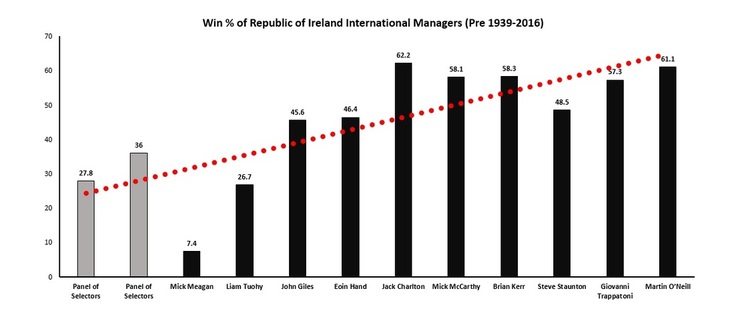Many works in the sports economics literature have attempted to measure the efficiency of managers in light of the human capital available to them. Every football manager has a range of talent inputs at their disposable and the observed results is the consequential output. Of course, this is dependent on a range of factors, especially the quality of talent available to any given manager and the quality of opposition faced.
As part of research I am conducting with Oliver O’Brien and Pat Massey, we are trying to measure the efficiency of Irish international managers. Ireland is interesting to look at as our management structure switched from a panel of selectors to single manager in the 1969-70 season.
The graph below provides a snapshot of the research and displays the win ratios of permanent Republic of Ireland international managers (from before the second world war to present). The initial switch to a single manager didn’t yield positive results immediately but as time as gone on Republic of Ireland managers have become more successful.
There are lots of factors coming together here however and it's highly unlikely we became more efficient purely due to managerial changes alone. For instance, how important was Charlton’s exploitation of the granny rule? Also, as time has gone the game has become so much more professional. Coaching techniques and investment in infrastructure has definitely improved. We often hear old stories of Irish internationals getting on a boat to travel over for international matches just after finishing a club game – thankfully those days are long gone.

 RSS Feed
RSS Feed